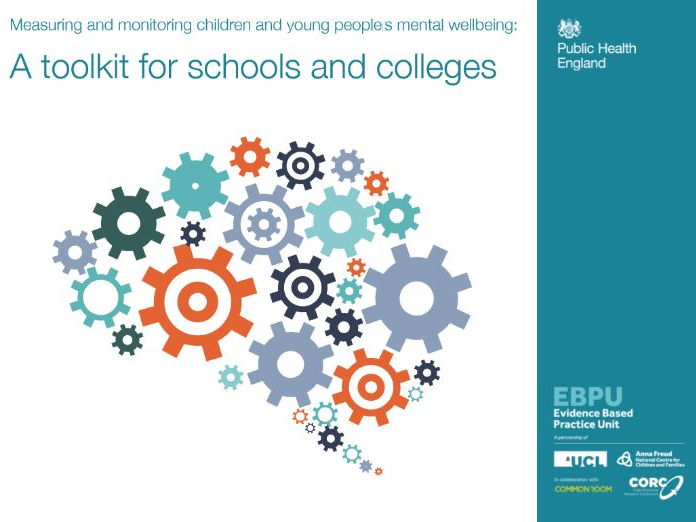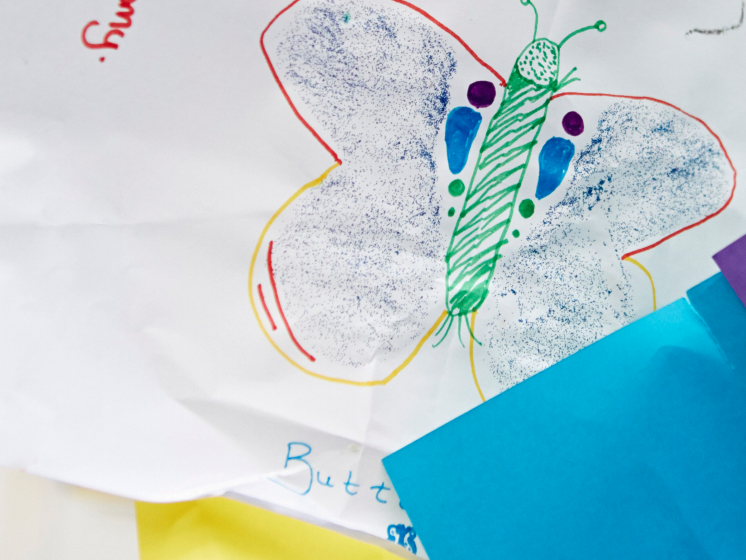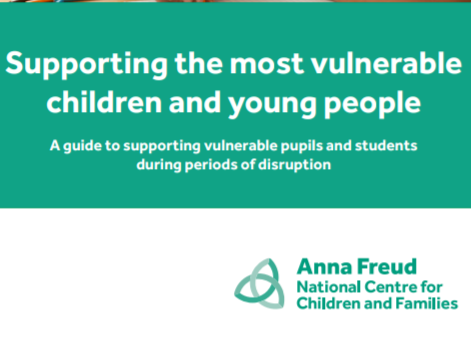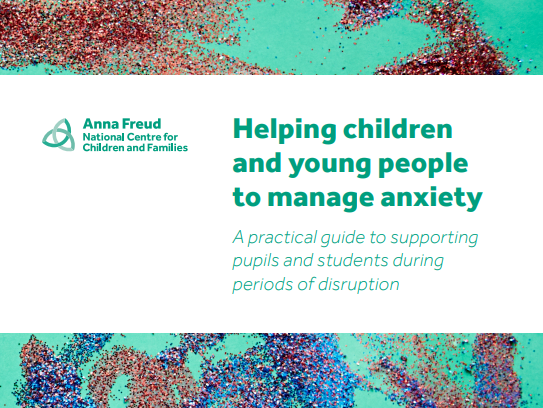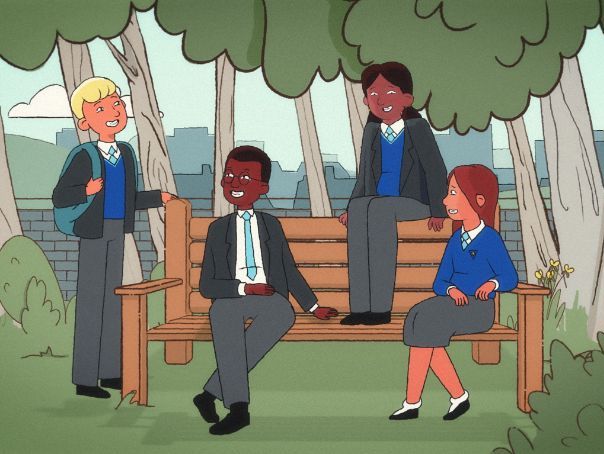36Uploads
20k+Views
31k+Downloads
All resources

Exam and assessment stress: guidance for staff in further education colleges
Stress around exams and assessments is normal, but it can also impact negatively on college work and day-to-day life. Get practical advice on helping your students through these periods of stress.
This resource provides information for college staff on how to identify if a student is struggling with exam and assessment stress, and how to support them.

Eating disorders: guidance for staff in further education colleges
Most eating disorders develop during adolescence, so college is a significant time for those struggling with eating disorders. Learn more about how to support your students and where else to get help.
Support and guidance for staff in further education colleges on the topic of eating disorders, sharing signs to spot, conversation starters and who else to involve.

Improving school staff knowledge and confidence around anti-racism
Lists of books, videos, articles and more that educators can use to explore and develop their racial literacy.
Knowledge of race and racism is also known as ‘racial literacy’. Being racially literate means that educators have the knowledge, skills, awareness and confidence to talk about race and racism in their setting.
Talking about race in an education setting can feel very challenging, and these conversations can often be difficult. However, it is crucial that school staff foster a supportive and safe environment where these vital discussions can take place.
Developing racial literacy should be thought of as a continuous process of learning and un-learning for educators.
Because it’s a continuous process, it isn’t about always being correct, but instead having a willingness to learn. By working on our racial literacy, we will feel more comfortable to be curious, ask questions, facilitate discussions and to learn from each other.
In this resource, we’re sharing books, videos, articles and more that educators can use to explore and develop their racial literacy, and think more deeply about the impact of racism on mental health.

Measuring and monitoring children and young people's mental wellbeing: A toolkit for schools
Efforts taken by schools and colleges to promote the physical and mental health of the student population creates a virtuous circle, reinforcing attainment and achievement that in turn improves student wellbeing, enabling students to thrive and achieve their full potential.
With half of all diagnosable mental health disorders established by the age of 14, there is a strong case to promote children and young people’s mental health.
There are a range of risk and protective factors that impact on mental wellbeing. These span individual factors, family, learning environments and the wider community. The evidence tells us that the learning environment plays an important and valued role in helping protect and promote student mental wellbeing.
Public Health England and the Anna Freud National Centre for Children and Families are committed to improving health outcomes for children, young people and their families, and collaborated to fund and develop this toolkit.
The toolkit aims to raise awareness amongst school and college staff of the range of validated tools that are available to help measure subjective mental wellbeing amongst the student population. This, in turn, will help school and college leaders make use of school and college level data to identify the mental wellbeing needs of students and determine how best to address these.

Engaging Parents
As part of the Anna Freud National Centre for Children and Families ‘You’re never too young to talk mental health’ campaign we’ve released a series of expert advice videos for schools on a range of topics. Here, Brenda McHugh, Consultant Psychotherapist, gives advice to school staff about engaging with parents.

Coronavirus - Sharing good practice and looking to the future
In this booklet we include some examples of good practice that schools have shared with us about how they’ve responded to the challenges of lockdown. We also look at how this period of lockdown can help us think about whole-school approaches to mental health and include some suggestions about how to start this process.

Coronavirus - Looking after each other & ourselves
A guide to supporting the mental health and wellbeing
of staff at schools and colleges during periods of disruption

Coronavirus - Supporting schools & colleges
Our free Supporting schools and colleges booklet provides advice and guidance for school staff about how to help children and young people manage their mental health and wellbeing during times of disruption to their learning.

Coronavirus - Managing unexpected endings and transitions
Our free Managing unexpected endings and transitions booklet draws on the existing evidence base around endings and shares some established approaches to support children and young people. It also includes a great case study of how one primary school has maintained connections with pupils and parents in the crisis.

Coronavirus - Supporting the most vulnerable children and young people
Our free Supporting the most vulnerable children and young people guide advises on three practical steps to help the most vulnerable children and young people during the Coronavirus pandemic. These are around risk assessment, focusing on nurture and upskilling staff.

Coronavirus - Helping children and young people to manage anxiety
Helping children and young people to manage anxiety: A practical guide to supporting pupils and students during periods of disruption draws on the existing evidence base around self-care and Cognitive Behavioural Therapy (CBT) to think about how we can support children and young people struggling with anxiety. It is aimed at supporting teachers working remotely with children, and can also be shared to support parents and carers who are playing a more significant role than ever in their child’s education at a challenging time.

Moving Up! The transition to secondary school
This animation and accompanying teacher toolkit is aimed at supporting pupils who have recently started Year 7 or who will be preparing to transition to secondary school later in the year (Years 6 and 7). They were developed in collaboration with young people, teachers and mental health experts. The animation aims to support pupils to:
Identify potential worries associated with starting secondary school
Know they’re not alone if they are feeling worried
Talk to a trusted adult or friend if they have any concerns
Identify solutions and strategies for looking after their mental health, including self-care

We all have mental health
This animation and accompanying teacher toolkit is aimed at Key stage 3 secondary school pupils (Years 7-9). They were developed in collaboration with young people, teachers and mental health experts. The animation aims to give young people of this age:
Consistent and accessible language to talk about mental health
A better understanding of mental health self-care
To know who to ask for support when it is needed
The Teacher Toolkit for school staff to use alongside the animation includes:
A Lesson plan and PowerPoint
An Assembly plan and PowerPoint
Various resources and classroom exercises

Talking Mental Health Teacher Toolkit
We know that over 50% of mental illnesses start before the age of 14 and one in 8 children and young people has a mental health disorder. The Talking Mental Health animation and accompanying resources aim to open up conversations with children about mental health in school, at home and with friends.
The Toolkit includes:
An assembly plan
A lesson plan
A set of cross-curricular activities
Resources to accompany the above
These plans and acivities have been written by a group of teachers at the Anna Freud National Centre for Children and Families. While we recognise that every school and class is different, we have produced these as a starting point for working with years 5 and 6 at your school.

10 ways to support school staff wellbeing
Concerns about the mental health and wellbeing of children and young people are currently in the public spotlight. However, any conversation about supporting our children’s wellbeing must also include how we support our teachers.
We must do more to support school leaders, teachers and other school staff to ensure that their mental health and wellbeing is prioritised. If we don’t recognise the importance of this we will fail not only staff, but the children and young people they support.
This resource is based on the views of school staff who participated through our Schools in Mind learning network and those who responded to our Teacher Tapp survey. This resource provides some helpful materials and encourages schools to reflect that if they want to make a success of promoting children’s mental health, this can only be achieved by giving the staff wellbeing the consideration it deserves.
We have summarised the ten key ideas that have come out of this resource in a poster which can be downloaded and printed or shared.

Supporting staff wellbeing in schools
Teaching is a tough job. It can be immensely rewarding but also physically and emotionally draining. If we want our school staff to do what is asked of them, then we need to make sure that their mental health and wellbeing is effectively supported.
This booklet has been developed with our mental health experts, and aims to give school staff and Senior Leadership Teams some simple guidance and good practical examples where schools have successfully implemented wellbeing strategies.
Topics featured include:
What can impact or support staff wellbeing?
What can Supervision look like in schools?
How can senior leaders prioritise wellbeing?




